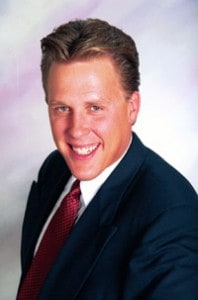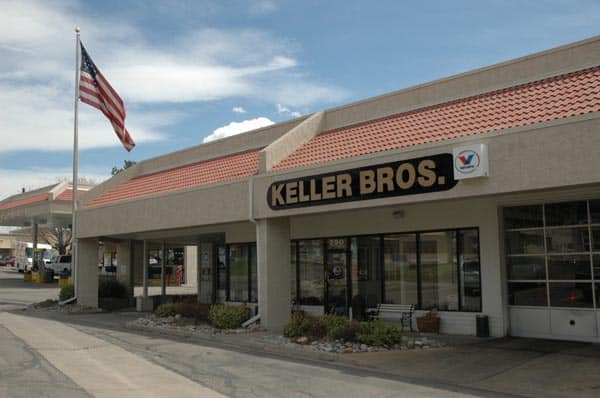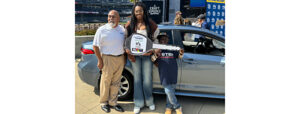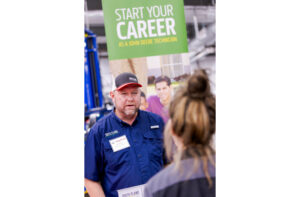Denver shop owner and serial entrepreneur David Rogers shares his perspectives on aftermarket challenges and opportunities, from leadership and the economy to the technician shortage and industry image concerns
Marathon, Fla.—On a small archipelago of 13 islands called Marathon in the Florida Keys, 50 miles from Key West, David Rogers remotely oversees his four Denver-area businesses, where he has a strong management team in place and holds multiple daily meetings.

His companies include Keller Bros. Auto Repair, an award-winning shop; Automated Marketing Group (AMG), an advertising agency and marketing firm primarily for auto repair businesses; Auto Profit Masters (APM), a repair shop training company; and Shop4D, a shop management system that leverages artificial intelligence (AI) to grow shop efficiencies and profitability.
Aftermarket Matters had an opportunity to speak with Rogers on a variety of subjects concerning the aftermarket and how he’s learned to be successful. A few are highlighted here:
Targeting the right shop customer
“The customers we seek have more money than time, but not so much money that they’re buying a new vehicle every three or four years and being kept under warranty.
“There are a lot of factors to consider when determining who those customers are. We research extensively to determine the right customer, what their income is and, if they have children, then how many and how old, and more demographic data for our shop clients, specific to the communities they serve.
“We’re not interested in the coupon-cutters who will just move on to another shop’s promotion.”
Influence of economic and political climates
“Economic and political climates greatly affect the research process we employ from one administration to the next and change the landscape of our processes.
“New-car sales are trending down and consumers are increasingly repairing and servicing their vehicles. There was a little bit of that in the beginning of the Obama economy, but there came a point when people weren’t even doing that — they were just living with their problems and getting must-have repairs performed.
“There was financial fear every day, but now there’s much more confidence in the marketplace so that people can plan ahead. Shops have to change with the times and part of the equation is customer education and supporting them in a way that fits their plans. Are they close to trading in their car or are they going to maintain it and for how long? How are shops shaping their repair offerings and focus — is it warranty or service packages, for example?
“It’s important to keep your finger on the pulse of your customers in order to build trust and credibility — and deliver to them what they entrusted you to deliver. It’s sounds cliché, but it’s critical.
“That’s why Keller Bros., on a tiny side street in a strip mall with no visibility, has four techs who can output $3.5 million annually. I’ve yet to see another shop outperform our numbers.
“Right now, while the economy is solid, is the time for shops to tighten up their processes and systems if they’re unhappy with their present performance. Otherwise, when the next recession hits, they’ll be part of the thinning of the herd.”
Shop leadership — ‘Know thyself’
“Many great people are not great leaders. Some business owners don’t like to guide and train their staff and hold them accountable, which is fine because that’s who they are and it’s not because they’re bad people or weak. They just don’t have the ingredients and don’t want to go through what it takes to develop those ingredients in themselves to be a successful leader. It’s important to know who you are and what your abilities are.
“A few years ago, we set out to create the best digital vehicle inspection possible, and we wound up building an entire shop management system around it called Shop4D. We did this, and invested ourselves in this project, because we wanted all shop owners to be successful, no matter where their skills and abilities lie.
“Shop4D is designed to hold the team accountable to following your processes regardless of your comfort level at being a leader or manager. It doesn’t take a strong leader to make the entire team more efficient, bill more hours, and increase sales.”
Technician shortage hurdles
“I don’t think anyone would tell you that we have a bigger problem in our industry than the technician shortage. For every four or five techs who leave or retire each year, only one enters.
“The pain point is the fact that dealers control the technicians coming out of schools because they have manufacturer resources to fund those institutions.
“The dealers are controlling the process and getting first choice of those new techs because the manufacturers are getting the exposure. They provide schools new cars to work on and buy them tools, etc., which an independent shop can’t afford to do.
“I’m not saying dealers are bad people, I’m just pointing out how the deck is stacked against independents. They can’t afford to give a junior college a new BMW every other year.
“Something needs to change. But until it does, independents are left to deal with the reality that we have to get more done with less. The only winning move we have is to make the shop so efficient that techs can bill hours and move cars through the bays as if we had those missing technicians on staff. This is the power of Shop4D.”
Industry image concerns
“Getting the new generation into those schools and programs is challenging, too. Our shop donates money to every elementary school, middle school and high school that asks us for it. But at the same time, they won’t invite us to come in for career day to discuss auto mechanics.
“Why? The problem is vo-tech has been slandered for so long as a place to dump kids who don’t ‘fit the mold.’ Hollywood hasn’t helped, either. More often than not, technicians aren’t presented through a lens that’s clean, professional, upstanding and ethical — it propagates the wrong industry image.
“We have to look at society more closely if we’re going to get more people into the industry. Someone like TV personality Mike Rowe, on the other hand, is doing a great job of educating the public on trade industries as excellent career options. All of my techs make more than $100,000 with great benefits. More awareness is needed to spotlight the opportunities available.
“At Keller Bros., we solve the shortage of qualified techs by growing our own in-house, so that they meet our high standards and caliber. Many start as lube techs. I don’t often hire from the outside, though I would if I could, but there are very few out there. It takes me six months to a year just to get one qualified candidate in the door.
“We’re very careful about who we select and we hire only a very small percentage of those we interview. We require the right character, discipline, job history, attitude and professional appearance. They’re the kind of person we’d put in a car next to our grandmother.
“There also has to be a long-term plan for the tech — do they fit your plan or are you trying to make them fit your plan? I don’t hire someone for a job, I hire them because I want them to build their careers inside my businesses and be part of the organization.
“I’ve always been able to make money — it’s never been a problem. What’s important to me is impacting people and making real change, and watching how that change evolves into success in their lives and their family’s lives.
“It’s not just all about fixing cars and billing hours. It’s about building a successful, happy team that takes great care of our customers and their families.”






Comments are closed.